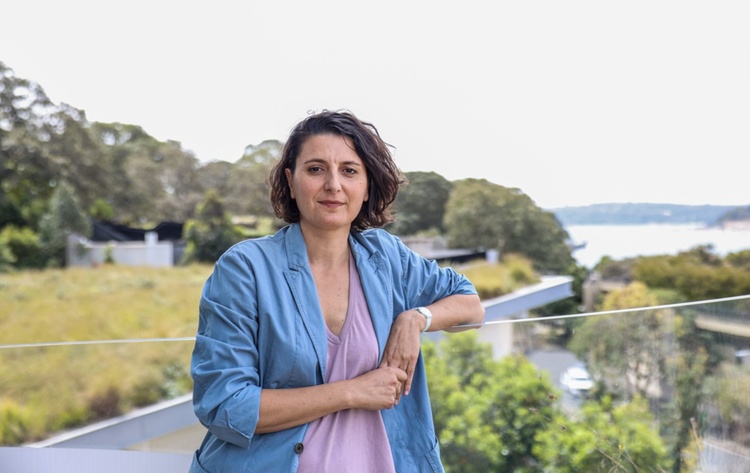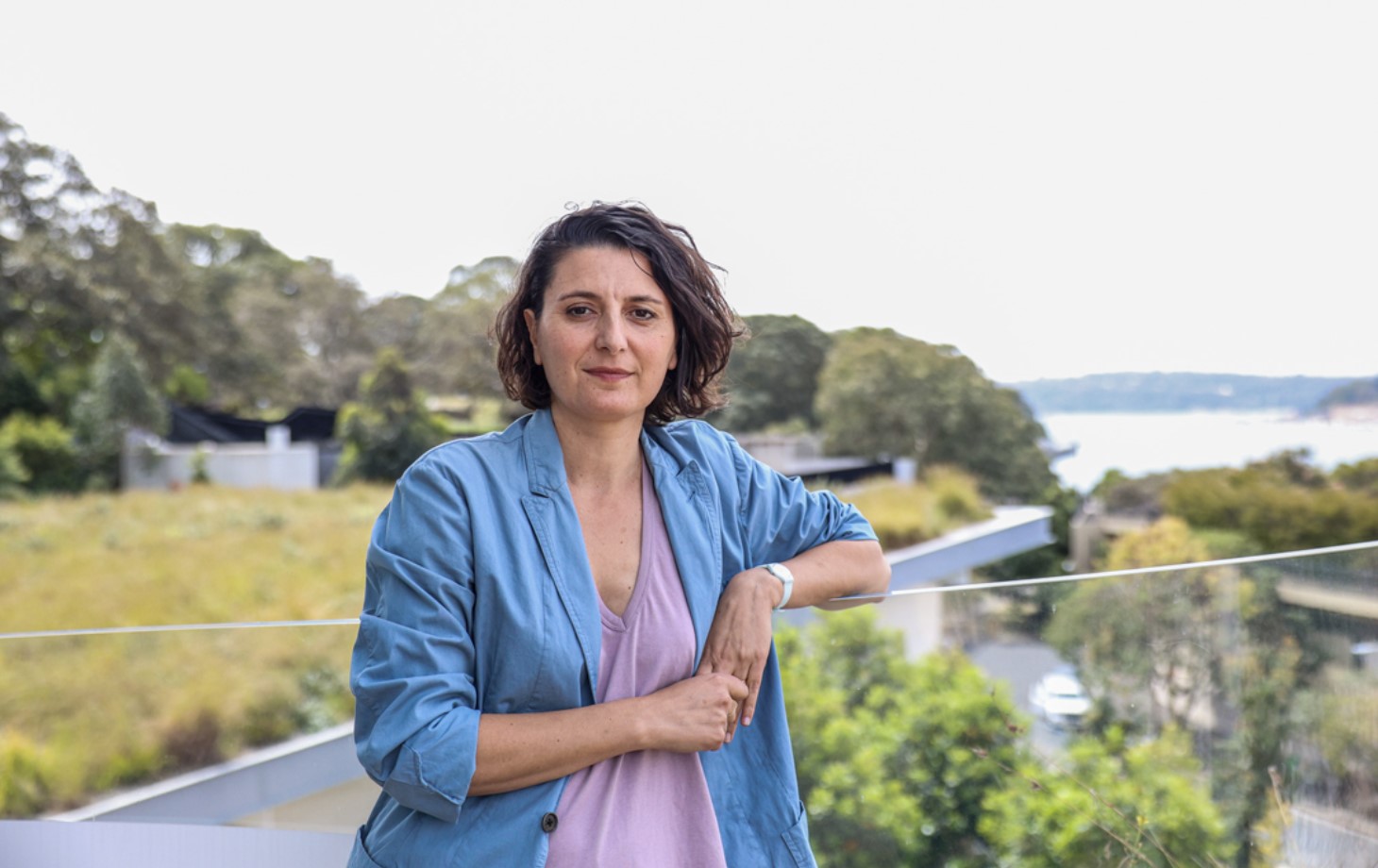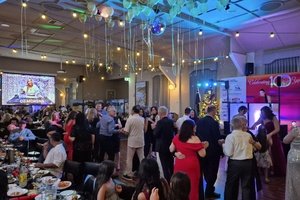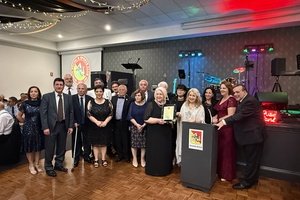Angelica Mesiti is one of the most influential Australian visual artists of her generation. Born in Australia to a Calabrian family and raised in Marsfield, she is a multidisciplinary artist whose practice combines performance, video, sound and installations to create immersive works that explore the dynamics of collective and non-verbal communication.
Mesiti divides her time between Paris, where she teaches at the École Nationale Supérieure des Beaux-Arts, and Sydney. Her work has been presented at prestigious international exhibitions like the Venice Biennale.
In 2019, she represented Australia with Assembly, a work that explores democratic and collective participation through an innovative artistic language that intertwines music, stenography and choreography.
Her recent work, The Rites of When, is a large-scale video and sound installation reimagining collective and communal rituals in relation to seasonal cycles during a period of environmental uncertainty and flux.
Mesiti is the first artist to hold an exhibition in the space created from a World War II naval oil tank, the Nelson Packer Tank, which was recently converted into a gallery at the Art Gallery of New South Wales.
The new evocative setting perfectly complements Mesiti’s reflections on natural cycles and humanity’s relationship with nature. The Rites of When, on display until May 1, 2025, fully utilises the immersive nature of this space.
Through video and sound projected onto seven different screens, Mesiti reflects on collective celebrations tied to seasons, exploring ancient rituals such as the winter solstice and summer harvest festivals.
The climate crisis is at the heart of the artist’s reflection. “How can we continue to celebrate nature’s cycles when the seasons change in ways we no longer recognise?” is one of the central questions of her work.
Drone photos of agricultural fields feature tractors meticulously framing the geometric rigor of industrialised landscapes. Mesiti highlights how modern agricultural practices, which are repetitive and methodical, represent humanity’s attempt to control nature. She underscores the ecological cost of this pursuit by emphasising the growing disconnection between humanity and nature.
However, the artist’s interest in natural cycles and collective rituals is also inspired by her family background. Her grandfather, who emigrated from Calabria after World War II, was a farmer, so much of the food her family consumed was grown in their garden.
“My grandparents were market gardeners,” Mesiti explains. The term ‘market gardeners’ in Marsfield refers to small-scale farmers, often immigrants, who grew fresh produce for direct sale at local markets. Many of these farmers were Italian immigrants who settled in Sydney after the war.
In Marsfield, these immigrant families grew fruit and vegetables for both sustenance and sale, contributing to the local economy and supporting their communities. “The food we grew was the food we ate. There was a lot of pride in that, as in many Italian families, and especially among immigrant families who carry on traditions of cooking,” Mesiti reflects.
Mesiti grew up in a multigenerational household where she often communicated with her nonno, who lived with her and didn’t speak English well, while she didn’t know much Italian. The experience deepened her awareness of non-verbal forms of communication.
As we show her photos of the Madonna delle Grazie procession in Marsfield that took place in Eastwood recently, Mesiti recognises her Italo-Australian community, to which her grandfather contributed by bringing the Madonna statue from Italy in the 1960s.
She is pleasantly surprised by the large participation of young people at the event, but she expresses concern that these practices, if they don’t evolve, might lose relevance for future generations.
“Traditions must evolve to remain meaningful. If they remain frozen in time, they risk becoming oppressive, especially for women,” she said.
Her connection to her roots is evident in The Rites of When, where tradition becomes a starting point for exploring new meanings through invention and imagination. “I wanted to reinvent traditions, not just observe them, because today we live in continuous crisis, and art can provide us with a space to imagine new solutions.”
Another element present in the work is the idea of the Dionysian carnival, a liberating celebration where social conventions are suspended. Mesiti explores this political and cultural dimension of the festival, emphasising how gathering and celebrating can be an act of defiance against authority.
“There is something very human and universal about the need to celebrate together, something that challenges power structures,” she says, reflecting on how pre-Christian Dionysian rituals were connected to survival and nature, and how they resisted institutional pressures to conform to social norms.
The artist continues to renew her practice, adapting to cultural and global changes. After 2019, with the climate emergency and the pandemic, Mesiti felt the need to take a step forward, using imagination and invention as tools to address the challenges of the present. “Art shouldn’t tell you what to think, but offer a reflective space for your own considerations,” she concludes.
Living between Paris and Sydney has allowed Mesiti to embrace different perspectives and engage in a dialogue between cultures and times, making her one of the most original voices in contemporary art.












